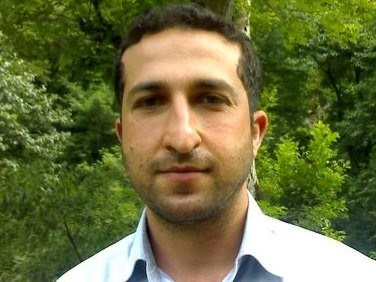Youcef Nadarkhani: U.S. Condemns Impending Execution of Iranian Pastor

International leaders and supporters of Youcef Nadarkhani are calling for the release of the Christian pastor who has been sentenced to death in Iran.
Earlier this week, the Iranian regime is believed to have given the final execution order for Nadarkhani, who was imprisoned in 2009 for forsaking Islam and converting to Christianity, and eventually found guilty of the crime of apostasy.
Efforts from human rights and religious organizations to bring international attention to the case seem to be working. Late Thursday, the White House publicly condemned Iran for the verdict.
The United States condemns in the strongest possible terms reports that Iranian authorities' reaffirmed a death sentence for Iranian Pastor Youcef Nadarkhani for the sole reason of his refusal to recant his Christian faith, the statement read.
This action is yet another shocking breach of Iran's international obligations, its own constitution, and stated religious values... The trial and sentencing process for Pastor Nadarkhani demonstrates the Iranian government's total disregard for religious freedom, and further demonstrates Iran's continuing violation of the universal rights of its citizens.
The state department also expressed its concern for the pastor, and also cited Iran's severe violations of religious freedom, while U.S. Reps. Joseph Pitts, R-Pa., and Keith Ellison, D-Minn. -- the latter a Muslim -- have sponsored a congressional resolution to call for Nadarkhani's freedom.
The persecuted are their own citizens whose only crime is practicing their faith. I believe this resolution is important so that the ayatollah knows the world is watching, said Pitts. If there are ways to communicate directly to Iran, then that needs to be done.
While attention to the case has waxed and waned, the new, final death order has brought the Nadarkhani case back into the international consciousness. On Wednesday, German Human Rights Commissioner Markus Loening also urged Tehran to release Nadarkhani, lift his death sentence and grant him a fair trial.
Last Chance
Nadarkhani's supporters are clinging to their final hopes that an execution order can be overturned.
The pastor's lawyer, Iranian human rights advocate Mohammad Ali Dadkhah, who also faces up to nine years in prison for representing Nadarkhani, brought the case up to the Supreme Court and then to the ayatollahs, but failed to get the death sentence overturned.
Now that the final execution order has been given, Dadkhah has one final chance to stop his client's date with the hangman, according to Dr. Khataza Gondwe, the Africa and Middle East team leader for Christian Solidarity Worldwide.
There is still a chance to stop the execution once the execution order is given, Gondwe said. Lawyers can still take some kind of legal action.
However, Dadkhah can only act once there is an execution date on the books, and there is a possibility that Iran will go ahead with the hanging before it informs Nadarkhani's family members and legal counsel. Iran can hang executed criminals convicted in the revolutionary court and then produce the execution documents after the fact, which is what happened with Pastor Hossein Soodmand in 1990, who was the last time person that Iran officially executed for apostasy.
That is why there is anxiety around Nadarkhani, said Gondwe. Because of the fear that he could be executed without notification.
The added danger in this scenario is that the court can posthumously change Nadarkhani's charge.
They could just come out later and say he's a spy, said Jordan Sekulow, executive director of the American Center for Law and Justice.
The execution list never has political reasons on it. Just drug trafficking, rape, spying and Zionism. There's always a concern that they will do that.
The courts have already tried to do so once. When news that the Iranian Supreme Court upheld a regional court's death sentence brought heightened media attention to the case, Iran claimed that Nadarkhani had been arrested for rape and spying charges. These claims were belied by leaked court documents.
The one written verdict we have seen has been for apostasy, said Gondwe. When other false charges were raised, it was an attempt to put a fig leaf over the situation.
As global attention to the case grows, the apostasy charge becomes especially troubling for Iran. Christianity is a protected religion under the country's constitution and Iran is a signatory to the Universal Declaration of Human Rights -- the precepts of which Iran seems to be breaking in this instance.
Additionally, apostasy is not officially a crime in Iran's legal code, much less one punishable by death. However, because it's a religious charge, the case has gone through Iran's Revolutionary Courts, which also cover various official fatwas and religious regulations.
The more attention that is shown on this case the better, said Gondwe. I don't think Iran would act extralegally if the world is watching. Maintain the pressure. Keep this man alive.
© Copyright IBTimes 2024. All rights reserved.





















